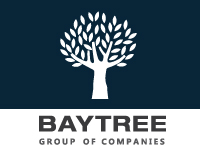CA
ON
스마트 디지탈 프린팅 - 인쇄 및 디자인
전화: 416-909-7070
4065 chesswood dr. Toronto, ON
.jfif)
럭키조경 & 나무자르기
전화: 647-564-8383
4699 Keele St. Unit 218 Toronto, ON

준비된 바이어 그룹 , BAYTREE 이너써클
전화: 416-226-5999
7030 Woodbine Ave. Suite 103 Toronto, ON

놀부 - 한식/일식/중식
전화: 416-221-4700
3 Elmhurst Ave, North York, ON

K-포차 ...미시사가(만두향프라자)
전화: 905-824-2141
169 DUNDAS ST. E. #7 Mississauga, ON

홍이표치과
전화: 647-985-0456
9625 Yonge St #4, Richmond Hill, ON Toronto, ON
1.jfif)
캐나다 공인 컨설턴트 - 한인크레딧 컨설팅
전화: 416-897-8438
1 High Meadow Place, Unit 2 North York, ON

토론토 민박 전문집
전화: 416-802-5560
Steeles & Bathurst ( Yonge) Toronto, ON

한인을 위한 KOREAN JOB BANK
전화: 6476245886
4065 Chesswood Drive Toronto, ON
.jpg)
행복부동산 -수잔정 Home Standards Brickstone Real
전화: 647-866-7878
180 Steeles Ave W Unit 30, Thornhill, ON

부동산캐나다 (Korean Real Estate Post)
전화: 416-449-5552
1995 Leslie Street Toronto, ON
.jfif)
싸인건설
전화: 416-909-7070
4065 Chesswood Dr. North York, ON
0.jfif)
It would be a place where all the visitors including me share the life stories and experiences through their activities,especially on life as a immigrant.
Why don't you visit my personal blog:
www.lifemeansgo.blogspot.com
Many thanks.
블로그 ( 오늘 방문자 수: 29 전체: 267,240 )
줄기세포 권위자(황우석) 윤리에 어긋난점 사과.
lakepurity
2005-11-24
S. Korean Stem Cell Expert Apologizes for Ethical Breach
한국의 줄기세포개발의 권위자 항우석교수 윤리의도를 넘어선것 사과.
Scientist Admits Team Member Provided Egg Samples That Led to Cloning of First Human Embryo
황교수는 첫번째 인간 태아의 복제를 하는데 사용된 난자를 같이 연구하는 팀멤버로 부터 기증 받았다는것을 시인했읍니다.
By Anthony Faiola and Joohee Cho
Washington Post Foreign Service
Friday, November 25, 2005; Page A24
TOKYO, Hwang Woo Suk, one of the world's leading stem cell experts whose South Korean team cloned the first human embryo and created the first cloned dog, publicly apologized Thursday for ethical breaches at his lab and said he would resign from all his official posts.
Under mounting pressure from the international scientific community, Hwang, 52, admitted that his team had used ova samples extracted from two of his junior scientists during research that led to the team's historic cloning of a human embryo in 2003.
Such practices are considered highly unethical in international scientific circles. The practice of obtaining eggs from female team members is widely viewed overseas as off limits because of the potential for subtle coercion, given the hierarchal structure of lab research -- something especially true in South Korea.
Choking back tears, Hwang said that he had not known about the women's donations until the magazine Nature began investigating the source of his team's ova specimens early last year.
Even after discovering the truth, however, he denied the allegations out of fear his project would be jeopardized, he said. The women, he said, had asked that their privacy be maintained. "Being too focused on scientific development, I may not have seen all the ethical issues related to my research," Hwang said.
A national hero in South Korea, Hwang has recently been dogged by international allegations of ethical impropriety that have threatened to severely set back his work. Last month, Hwang along with several leading scientists launched the Seoul-based World Stem Cell Hubin, a project aimed at seeking treatments for diseases that remain incurable.
But earlier this month, University of Pittsburgh researcher Gerald Schatten said he was pulling out of his association with Hwang, citing concerns about the way the group had obtained human eggs -- whose difficult procurement is typically one of the most vexing obstacles to large-scale stem cell research.
The controversy underscored how difficult it will be to hold to internationally accepted standards in the highly-sensitive field of stem cell research and cloning -- particularly between countries with very different societal traditions. Thousands of South Koreans took to the Internet and airwaves this week to staunchly defend Hwang, with many appearing baffled by why foreigners would see the donations as ethical violations "Hwang had no Western educational background, and unlike the West, Korean institutions have no systematic way of reviewing, judging and clarifying research result in a step-by-step process," said Hwang Yoo Sung, president of NeoDin Medical Institute, a Seoul-based research lab. He is not related to Hwang Woo Suk. "All researchers know that they need to abide by certain ethical procedures when they launch a project, but in reality, researchers in South Korea don't feel the need to constantly contemplate these issues."
The two women, in statements to a government commission that were later made available to the press, said they had made their donations in secret and under false names after Hwang had refused their offers. At the time, the team was desperately in need of additional ova for their stem cell work.
In an interview with The Washington Post, Hwang said Thursday that he had turned them down because it might pressure other female staffers to do the same. He said he confronted them in May 2004, after a reporter from Nature magazine made inquires about the donations. One of the women, a PhD student researcher, admitted to the reporter that she had made a donation, then retracted it. Hwang said that soon after, both women told him, but said neither he nor the women clearly "realized it was ethically wrong at the time."
After Nature's article stirred the scientific community, Hwang said he came to understand the implications. But he withheld the truth, he said, to protect his researchers from public embarrassment.
This year, Hwang's team was again hailed for creating Snuppy, the world's first cloned dog. But the ethical allegations persisted. And on Monday, Roh Sung Il, head of Seoul-based MizMedi Women's Hospital, also admitted that he had paid about $1,447 each to 20 women to gather human eggs for Hwang's research.